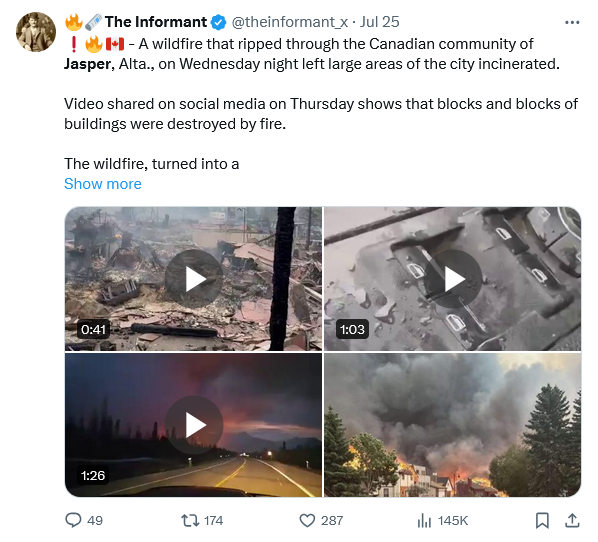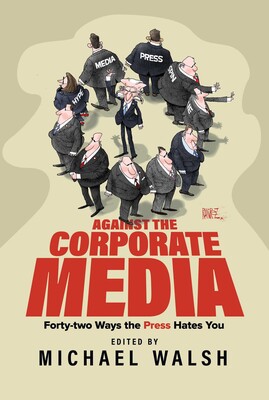In The Line, Jen Gerson points out that the federal government had been given plenty of warning — literally years — about potentially serious problems near Jasper and had done nothing about them:
When Ken Hodges heard about the devastating wildfire that took out part of the historic mountain town of Jasper this week, he said he was “frustrated”.
“All I could say is that we tried to warn them that it was coming. We told them constantly. It’s not a matter of if, it’s a matter of when.”
The retired forester, along with his colleague Emile Begin, spent years repeatedly warning the parks service, the federal and provincial government, city council, and residents, that mis-management of the forests around Jasper had created a tinderbox that would inevitably spark a massive wildfire.
“I just feel so badly for the people who have lost their homes and their businesses. Could it have been prevented? I don’t know. If they had done everything they could have? Maybe. Something was going to happen over time, so it’s so frustrating and devastating.”
Hodges first spotted the problem almost a decade ago while skiing near Marmot Basin. From his years working in forestry in B.C. — a province that had previously been devastated by both wildfires and infestations of the Mountain Pine Beetle — Hodges was able to identify similar patterns of decay in the forests in Alberta.
“It was a hillside on the way up to Marmot that I looked up and thought ‘holy crap. The Mountain Pine Beetle is here.'” His experience told him exactly what would follow — fire.
Not just any fire. “It’s the intensity and the ferocity of the fire that can cause the problem. With climate change, that exacerbates the situation as well.”
Eventually Hodges connected with Begin. The two men between them had 40 years of experience in forestry in B.C. and Alberta, respectively. They feared the Parks service was not prepared for what the men had seen in B.C. — and told them so. Repeatedly. Vociferously. They also sent letters of warning to several ministers; they met with the local municipality. They were interviewed by the CBC for a story that was headlined “Jasper National Park not prepared for potential forest fire ‘catastrophe’, researchers say“.
That was in 2018.
Also in 2018, the pair issued an open letter that read: “The potential for a huge fire or mega fire is real. Fires of this type and magnitude generally occur in mid August to early September. With climate change it may occur earlier.”
The response?
“They just wrote us off,” Hodges told The Line this week.






